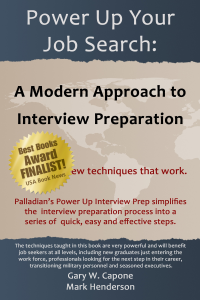Yesterday, I posted the recording of a transitioning military officer I interviewed. The question asked was:
Tell me about a time when your planning led to positive results.
This is a typical behavior based question and gives a job seeker the opportunity to discuss an accomplishment demonstrating their planning and organization.
The answer the transitioning military officer gave reviewed a good accomplishment from his background. The delivery did not make as good an impression as possible.
The primary problem with the answer was that it used too much jargon. The background of the situation was presented clearly. From there, it will was disorganized and the jargon made the answer tough to follow.
All job seekers need to be careful when using technical terms. A word you use every day at one employer may be unheard of at another. This is especially important for transitioning military officers to remember. The language used in the military can be vastly different from the civilian world.
To alleviate this problem, make sure you explain technical terms, or leave out the term and just give a descriptive explanation. In the recording, the individual talks about the "OPG-SOP" and explains that this is the Operational Planning Group Standard Operating Procedure. Using the acronym and then the formal name is unnecessary. It can distract the listener while they try to digest and remember the term. A better approach would be to just state that he "developed the standard operating procedures for our group." This is much shorter and simpler, and yet still conveys sufficient information.
Another problem with this answer was that it didn’t provide a tangible example of the results. There should be little doubt that strategic planning would be improved with more communications, better organization and improved cooperation. What isn’t clear is how significant this change was. All it would take is one example of a project that was improved in a clear, measurable way because the planning process was improved.
The answer also missed an opportunity. Although it demonstrated good strategic thinking and process improvement skills, there was nothing about how this experience would help another employer. The job seeker is not going to face an identical challenge later in their career. Despite this, the experience should help the individual to be successful in other roles. Great interviewers take experiences like this and directly show how the experience will benefit an employer.
In this interview, concluding the answer with a much stronger statement would have been better. Something like this:
Improving our planning process showed me how important it is to coordinate the activity of a decentralized team. The improvement we saw from the cross-talk between departments was significant. With this experience, I know that in the future, I will be able to improve an organization by maximizing the coordination of work between departments.
The more specific you can make the benefits you achieved in the past and will be capable of achieving in the future, the better.



